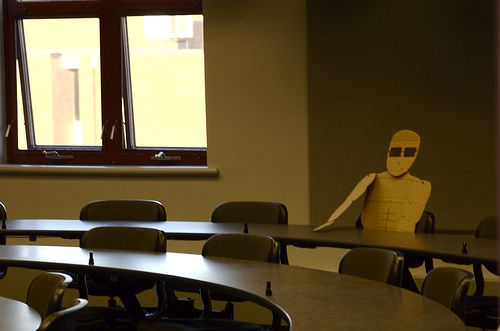
I think I inherited it from my Father’s side. Nothing makes me lose my mind more than when I’m walking through the mall and somebody steps out of a store right in front of me and walks slowly. Why didn’t they look? I would have looked. I do look.
It might only take less than two seconds for me to skirt around and resume my regular mall-cruising speed, but that’s enough time to make my eyes harden and my teeth clench. It’s enough for my mind to start getting self-righteous.
If I’m not careful, I end up in an internal dialogue about certain basic courtesies people should uphold in public, or maybe a half-daydream about how the oblivious lady in front of me must live a life of total obliviousness, wandering into busy streets or onto active construction sites, all without a clue that she may be affecting people’s lives with her deplorable lack of awareness. In either case, I end up feeling agitated, and slightly better than her.
The basis of my internal rant always seems to surround how people ought to behave in public. In other words, I make a moral issue out of it.
In a situation like that, my distress seems to be that I am simply yearning for a world in which people don’t stand in the way on sidewalks or step out in front of people at the mall. But it’s really a clever self-deception; what I am really yearning for in those moments is a slightly easier version of my present moment — one in which there is nothing in my way.
Though I’m not always aware of it, my own personal inconvenience is what I’m really railing against, not some worldwide epidemic of rudeness. My objection is purely selfish, under the guise of a noble appeal for a better world. But I’m not really looking for a better world, only a moment that contains no difficulty for me — no oversight I must excuse, no mistake I must forgive. Read More




 I'm David, and Raptitude is a blog about getting better at being human -- things we can do to improve our lives today.
I'm David, and Raptitude is a blog about getting better at being human -- things we can do to improve our lives today.
It all pretty the opposite if you're not in the US :) Since 2022 I've changed 3 countries and I'm planning to emigrate to the fourth one. I've had so much novelty and so many things to adapt to. However, time had never run so fast for me as in 2022...